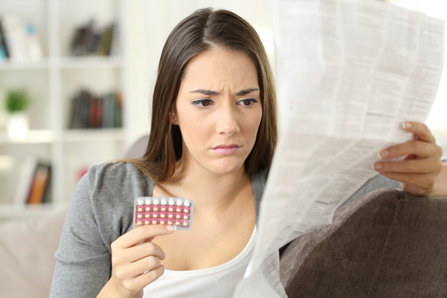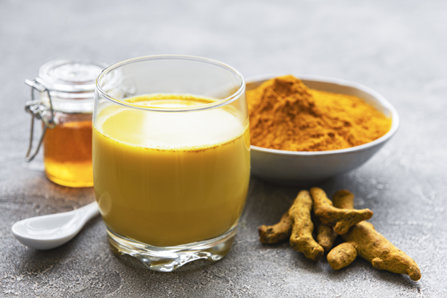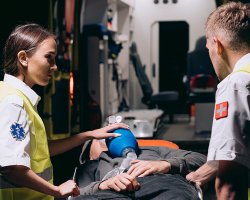New Mothers Increasingly Prescribed High-Strength Painkillers, Many with Harmful Effects

When a woman gives birth to a child, protecting her health and her baby’s health is crucial. This is a delicate time for both mother and infant, and care should be taken to ensure proper and safe health practices for both.
Unfortunately, there is a growing trend in the United States where new mothers are being sent home with prescriptions for opioid painkillers. Yes, the same types of painkillers that set off the addiction epidemic our country is currently struggling with are now being given to new moms. And yes, these are also the same kinds of painkillers that have killed tens of thousands of Americans since the turn of the century.
New mothers need safe and effective health services. So why are they being put on potentially addictive, even potentially lethal drugs? And are there any better alternatives?
More Women Are Being Prescribed High-Strength Painkillers Postpartum
Though a number of experts agree that opioid pain relievers are not needed to relieve pain symptoms in the vast majority of postpartum cases, it would appear that a rising number of new mothers are being prescribed high-strength opioids. According to a US News report on a recent study that examined 209,215 births in Tennessee, it was found that in 91 percent of all cesarean deliveries, opioids were prescribed. The same was true in 59 percent of all other deliveries.
Cesarean deliveries accounted for about 63,000 of the births included in the study, meaning about 57,000 of those new mothers received opioid prescriptions. For the other deliveries, those births accounted for about 147,000 births, with about 86,000 of those birthing mothers receiving opioids. Of the 209,215 births included in the study, about 143,000 of them, or 68 percent all-in-all, resulted in a doctor prescribing opioids to the new mother.
Experts Show Concern Over a Rising Trend in Prescribing Opioids to New Mothers
Multiple medical experts commented on the study’s findings, expressing concern as to its results. Why were so many new mothers being prescribed potentially mind-altering and addictive drugs? And given the fact that many of these mothers were breastfeeding, what were the opioids going to do to the infant children via the mother’s breast milk? And last but not least, why were so many doctors filling multiple prescriptions for new mothers, particularly when most postpartum pain should recede shortly after childbirth?
A brief commentary from leading experts in the field is worth mentioning here.
“This work highlights serious risks associated with opioid prescribing after childbirth, especially among women who receive multiple prescriptions…”

Dr. Sarah Osmundson, an assistant professor of obstetrics and gynecology at Vanderbilt University Medical Center in Nashville, Tennessee showed concern over the study’s findings. “This work highlights serious risks associated with opioid prescribing after childbirth, especially among women who receive multiple prescriptions. Routine prescribing after vaginal birth is still common, and it is alarming to know that this may put women at risk of long-term problems with opioids for a procedure where opioids have dubious benefit.”
Dr. Eleazar Soto, a maternal-fetal medicine specialist at UT Physicians/UTHealth in Houston, Texas also showed concern. “We typically don’t prescribe a narcotic after a vaginal delivery.” Dr. Soto went on to recommend the use of an abdominal binder to help relieve abdominal pain post-cesarean surgery.
Prescription Opioid Overdose Death Statistics – These Drugs are Dangerous
Overdose deaths involving prescription opiates are a significant and devastating problem in this country. That’s why hearing that they are being prescribed to new mothers is quite concerning. According to the National Institute on Drug Abuse, prescription opioid overdoses killed 14,975 people in 2018, the most recent year that we have data for. In fact, opioid painkillers have taken anywhere from about 14,000 to about 17,000 lives every year since 2010.
Opioid painkillers are known to be quite addictive. To put a new mother on such drugs and to expose her infant child to those drugs seems more than questionable.
The concern over the excessive prescribing of opioids to the new mothers was validated by the fact that about 4,600 mothers included in the study (or about 3 percent of those who had been put on opioids), experienced extremely harmful effects. Thousands became addicted to the drugs. Many overdosed, and a few of the new moms even died as a result. And that’s extremely tragic, as the majority of the opioid prescribing examined in this study was totally unnecessary.
Pain Relief for Postpartum Discomfort – Looking at Alternatives

Dr. Soto suggested two things for reducing postpartum pain. He said that staying hydrated can help prevent abdominal cramps and constipation, which can also minimize general stress within the abdominal region. Furthermore, he mentioned that the use of an abdominal binder can also reduce pain without resorting to painkillers.
And there are other, non-pharmaceutical approaches to postpartum pain relief. As many of these are holistic and not necessarily backed by scientific studies, moms should first ask their doctors about such methodology. Some of the alternatives could include:
- Herbal or salt baths. Such baths can help soothe sores and reduce swelling.
- Cloth pads and “padcicles.” Heated or cooled pads placed on pained, sore areas can help reduce acute pain symptoms.
- For internal pain that cannot be treated externally, non-pharmaceutical pain relief options that may prove beneficial include vitamins B, C, and D, turmeric, valerian root, Boswellia, cat’s claw, and capsaicin.
Addiction Treatment – The Correct Approach for Opioid Dependence
Should a new mother become dependent on opioid painkillers (or any addictive substance for that matter), she must seek help at a drug and alcohol rehab center as soon as possible. Addiction to opioids is a life or death matter. If you know someone who has fallen prey to an opiate addiction, even if they were initially prescribed opiates for legitimate medical concern, make sure they get help at a treatment center today.
Sources:
- https://www.acpjournals.org/doi/pdf/10.7326/M19-3805
- https://www.usnews.com/news/health-news/articles/2020-06-08/are-painkillers-after-childbirth-a-prescription-for-addiction
- https://news.vumc.org/2020/06/09/opioid-prescriptions-after-childbirth-linked-to-increased-risk-of-overdose-persistent-use/
- https://www.drugabuse.gov/drug-topics/trends-statistics/overdose-death-rates
- https://www.bigcitymoms.com/lifestyle-articles/11-postpartum-must-haves-for-natural-minded-moms/
- https://uspainfoundation.org/blog/holistic-approaches-to-chronic-pain/
- https://www.arthritis.org/health-wellness/treatment/complementary-therapies/supplements-and-vitamins/9-supplements-for-arthritis


 ®
®